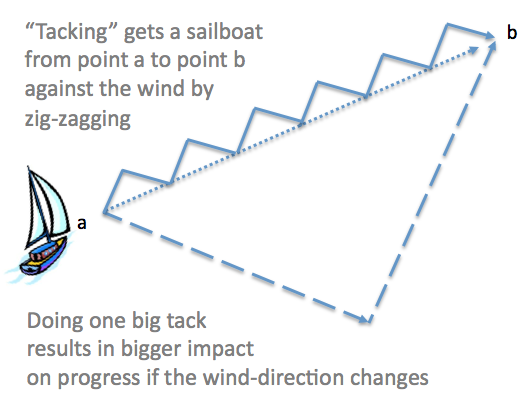|
It’s sad to attend public meetings. I do it all the time. They all follow the same format. Citizens speak about specific issues, or try to, sometimes the meetings are painfully goaded. Bureaucrats say they are listening and then feedback what was said in a generalized form. A mother in Preston says she needs a drive to work. The bureaucrats say, “citizens in the outlying communities are commenting on the need to study transportation infrastructure”. Let’s stop doing that. In its simplest terms, the woman needs a drive; just get her a drive. There are less than a million of us. We can talk to each other like human beings. We can help each other individually and directly. Sailboats can't sail into the wind. They have to tack back and forth to get up wind. We have engines - we can sail into the wind. The engine is powered by argument and facts. Promote a Civil Discourse Unfortunately, political discussion in this province has degenerated to the point where too many people just avoid discussing the topic. This may be a consequence of too many people watching too many opinionated talking heads on TV who become successful by shocking rudeness. I would suggest not watching these shows at all, but if you must, take care not to emulate the performers on these shows especially in the legislature where the level of debate has sunk to locker-room levels. We've come to mistake argument - which is the way by which ideas compete and improve - with arguing's poor cousins Fussing and Fighting. We mistakenly say thinks that distract us from good argument. For example, when someone says "you're being negative" instead of " I disagree with your argument based on these facts", it has the unhelpful impact of shutting down the kind of discussions we need when we want to figure things out. My idea is to re-introduce civil discourse about politics to our society. This discourse is an important factor in maintaining a healthy democracy. Try not to just repeat the talking points you hear, but spend some time thinking about what is really good for the province. Find some thoughtful people on the radio or TV who may have ideas different from your own and listen to them; or read a good book with some different point of view. If you cannot find thoughtful people to listen to on your radio or TV, try the internet (search using the word podcast) or take a look at www.buzzvoice.org. The Freakonomics of Nova Scotia Most importantly, explore the hidden side of everything. Find the people with the numbers and ask them to verify what is being said and accepted as true. Conventional Wisdom is not necessarily the same as The Truth. We adhere to conventional wisdom, the ideas that represent our understanding, as though clinging to a raft because it is simple, convenient and comfortable. For politicians conventional wisdom provides a point of contact with the people, to share with them their oft-discussed beliefs. But it is the job of Leaders to question conventional wisdom at every turn. Are fewer potholes in the roads really the key to a happier and more prosperous Nova Scotia? Is there really a ‘brain drain’ now in Nova Scotia where there was not one before? Does new development increase the tax base by creating grow or is it just an empty calorie growth substitute? Does amalgamation save money and build stronger communities? Is the future in offshore oil and gas? Do call centres and big box stores lower the unemployment rate? Do more new cars sales mean good things are happening in Nova Scotia? The data is out there to answer these questions if we can find the strength of character, the leadership, to ask them. Through argument and direct appeals to the facts and figures we can chart a course directly to our goals rather than tack back and forth like the sailboats of the past. |
John Wesley
Writing about life, citizenship, and Nova Scotia. Archives
June 2020
Categories
All
|

 RSS Feed
RSS Feed